CrossCurrents Library
CrossCurrents is an electronic publication that offers articles on a wide range of topics related to teaching and learning in higher education. Through engaging content that encourages exploration and reflection on best practices, innovative pedagogies, and emerging trends in higher education, we try to help college teachers successfully navigate the challenges they face in today’s complex classroom.
Featured Collections
Topics
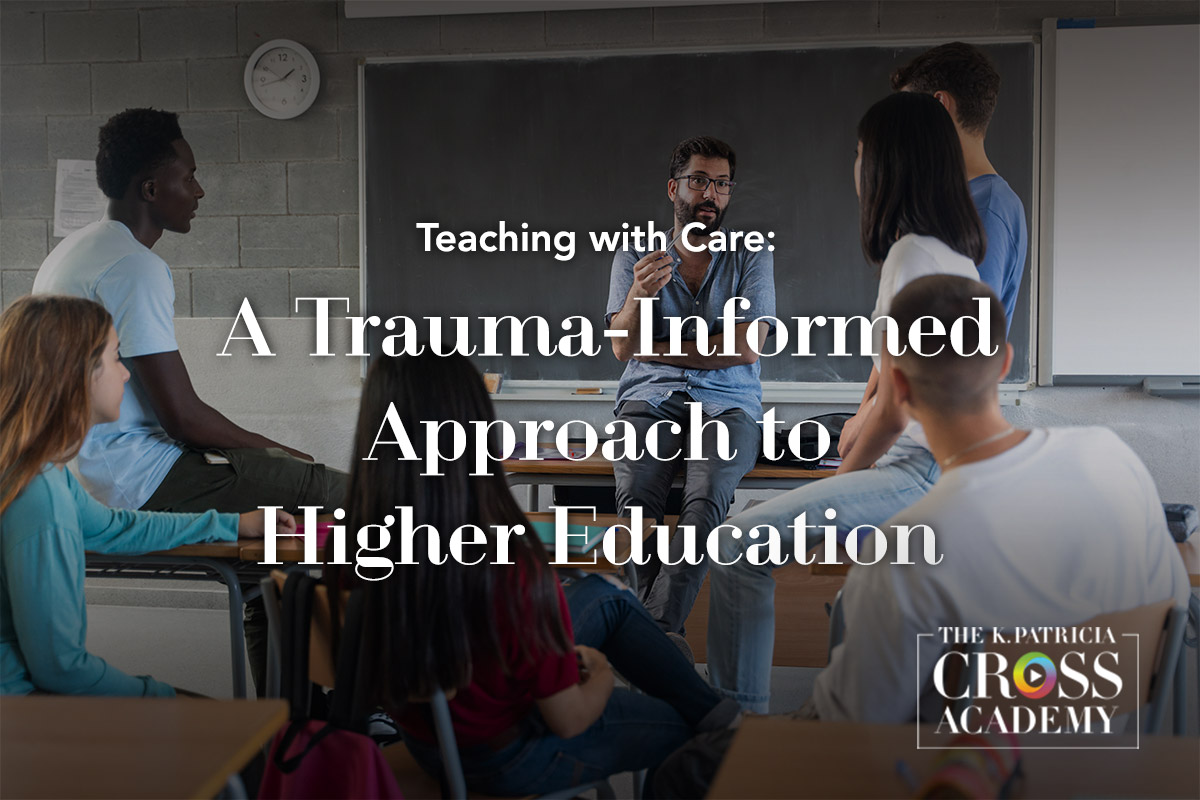
College students today face unprecedented mental health challenges. Data from the Center for Collegiate Mental Health reveals that nearly half of students who attended counseling services in 2023 reported having experienced trauma. n a University of Alabama at Birmingham survey of over 39,000 students across 332 higher education institutions, college students report Post-Traumatic Stress Disorder (PTSD) diagnoses have more than doubled since the pandemic, jumping from 3.4% to 7.5%. In 2022, the American Psychological Association declared that students across the United States are experiencing a mental health crisis.
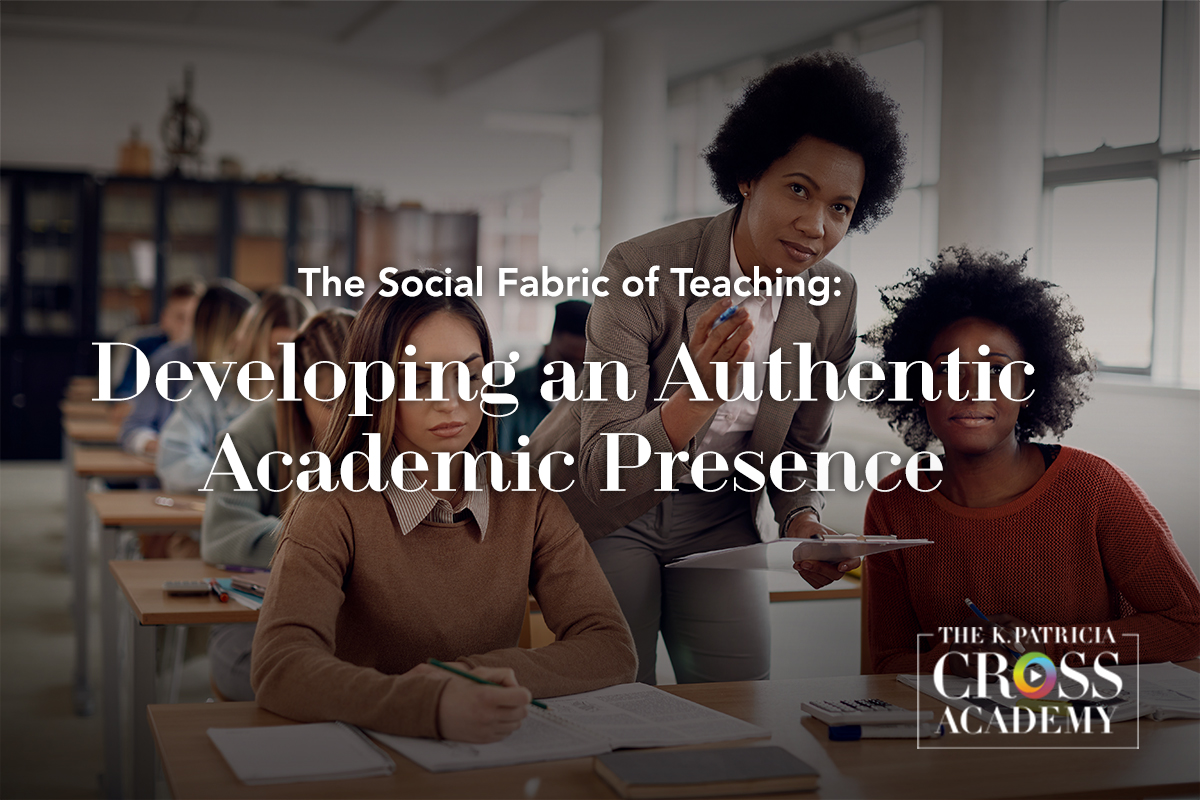
This blog post explores how educators can cultivate a teaching presence that resonates with students while aligning with their own values and disciplinary contexts. By understanding the relationship between personal identity and professional expression, we can create more inclusive and effective learning environments that benefit both students and faculty.
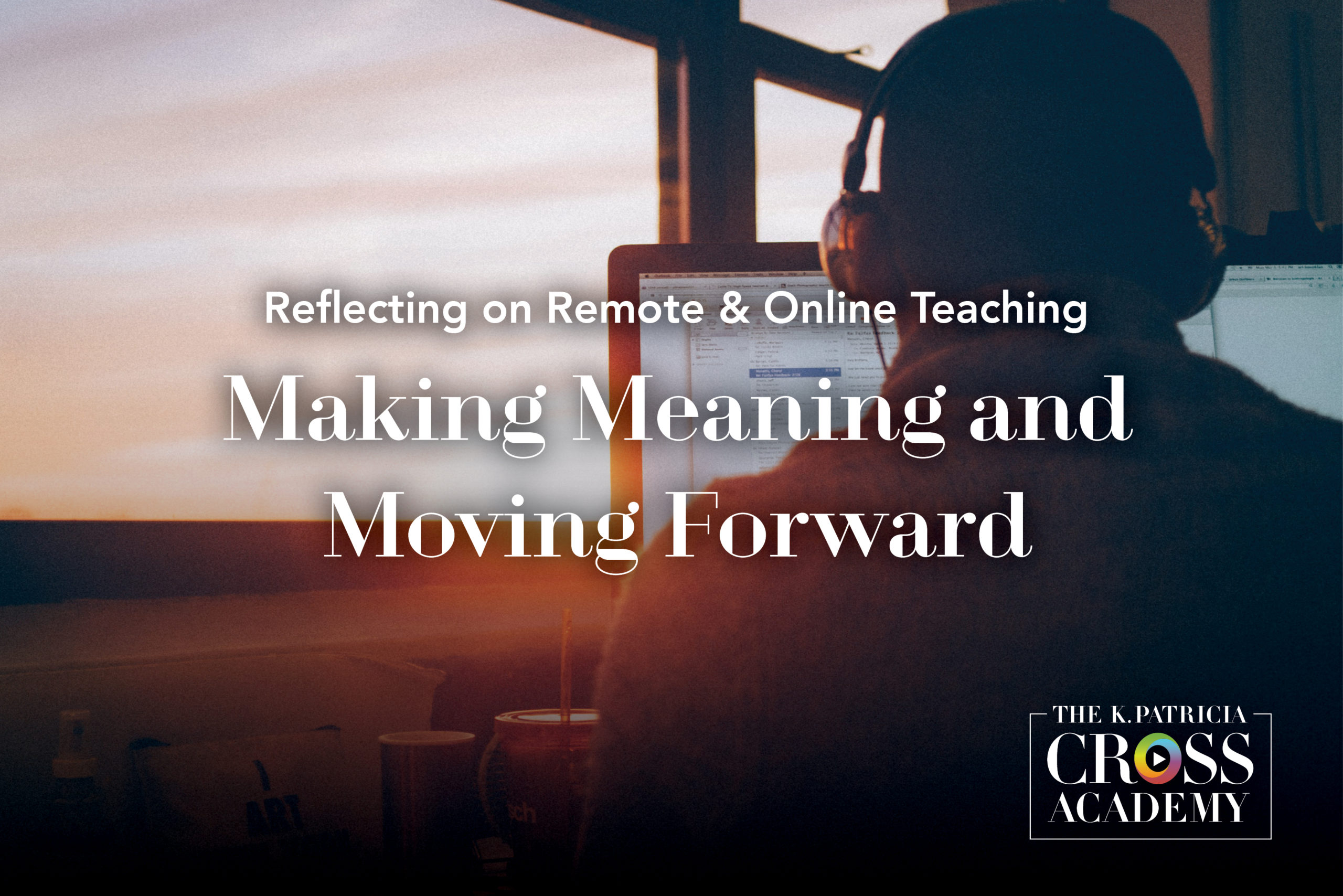
For years we have acknowledged that college teaching has gotten tougher, but the abrupt shift to remote teaching in response to the COVID-19 pandemic presented instructors with even more challenges. As colleges and universities struggled to deal with the crisis in the spring of 2020, some professors had only a week’s or even a weekends’ notice to restructure their classes
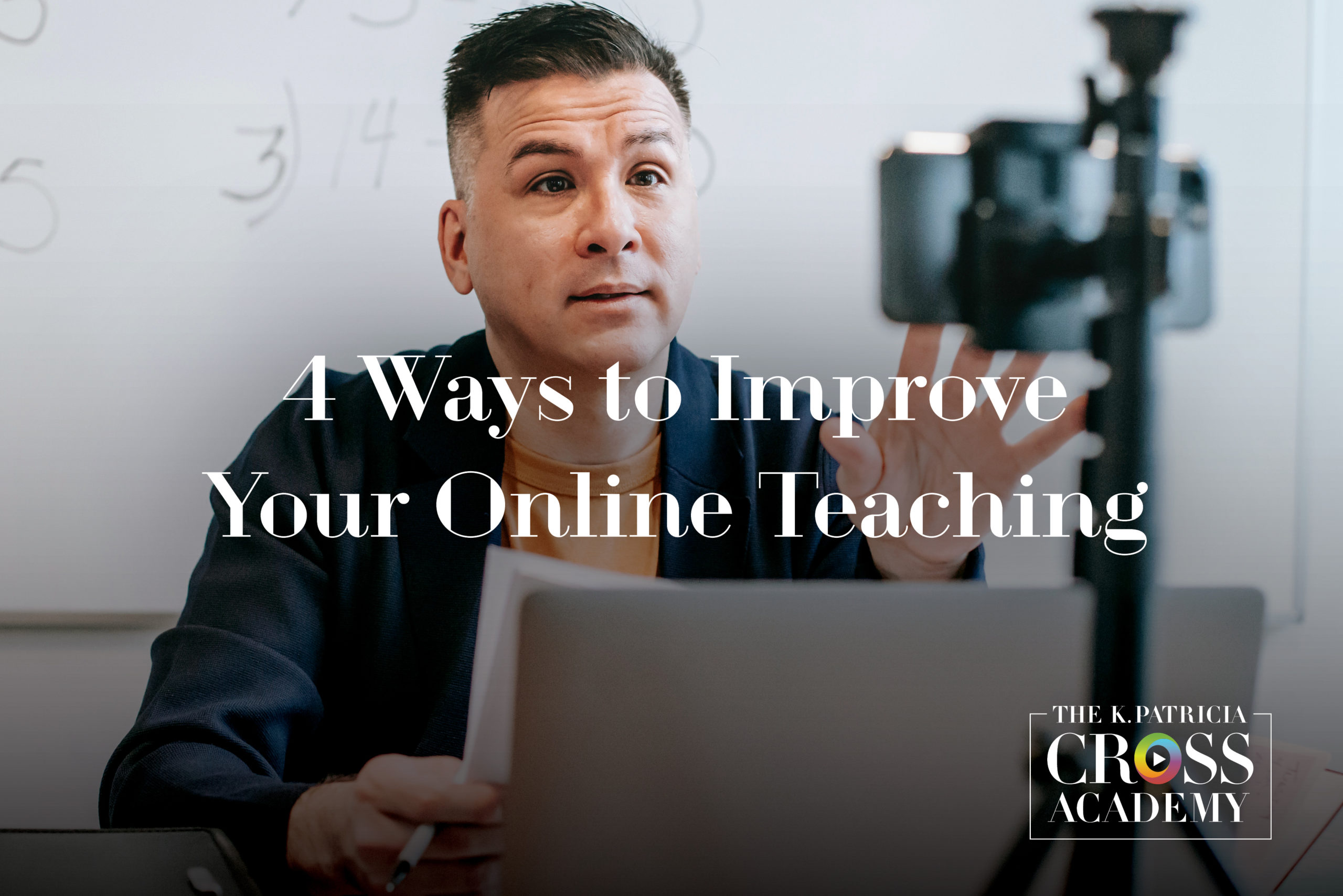
At the K. Patricia Cross Academy, our mission is to support faculty with easily accessible online teaching resources. As instruction is increasingly accomplished in an online environment, this edition of CrossCurrents is focused on highlighting some of the previous resources we’ve made available to instructors to aid in their development of successful, high-impact approaches to online teaching.
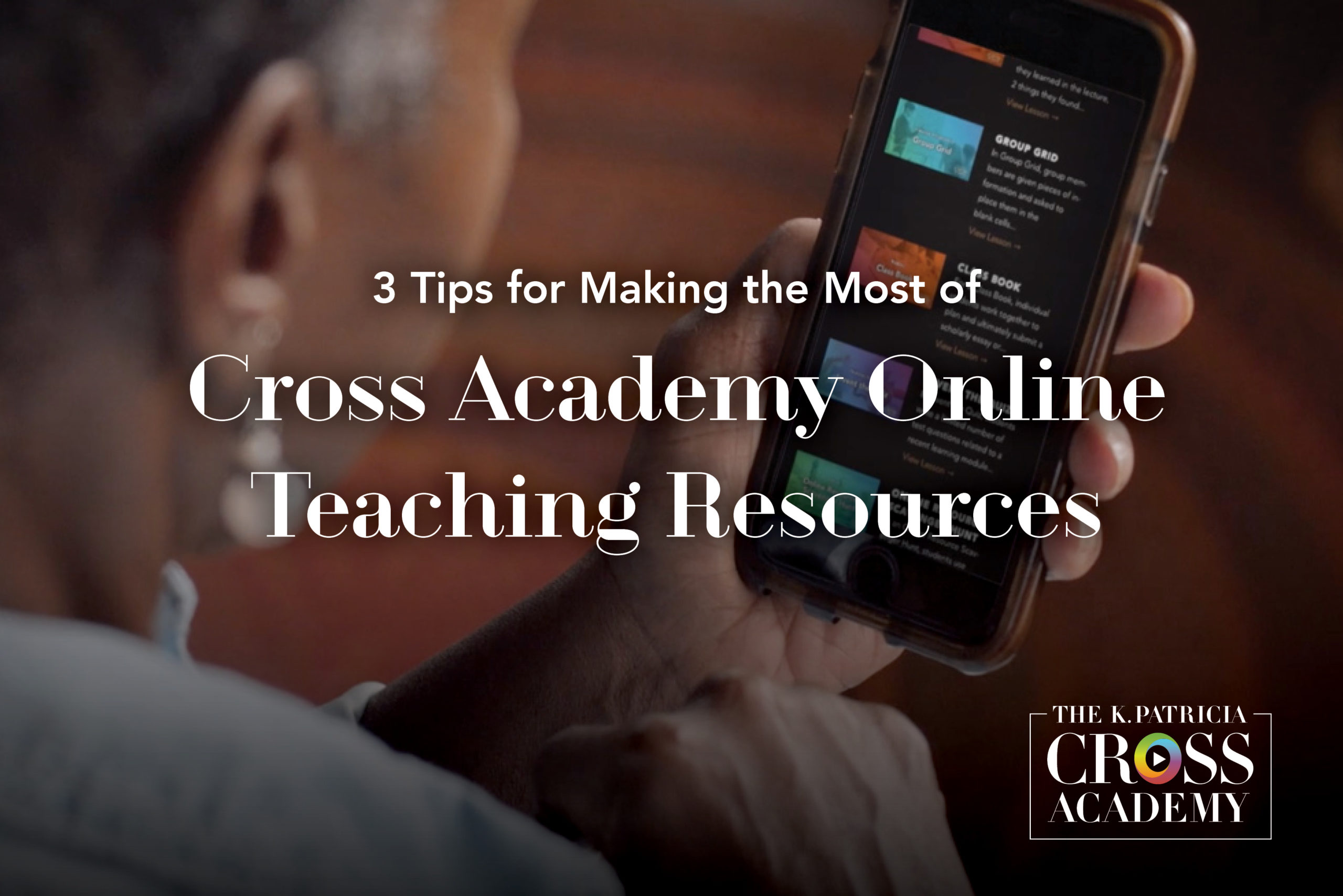
It’s been said that the best tool is the one you actually have with you, but how useful that tool is really comes down to whether or not you know best how to use it. Bearing that in mind, this post is aimed at helping you best utilize the online teaching resources provided by the K. Patricia Cross Academy. Video
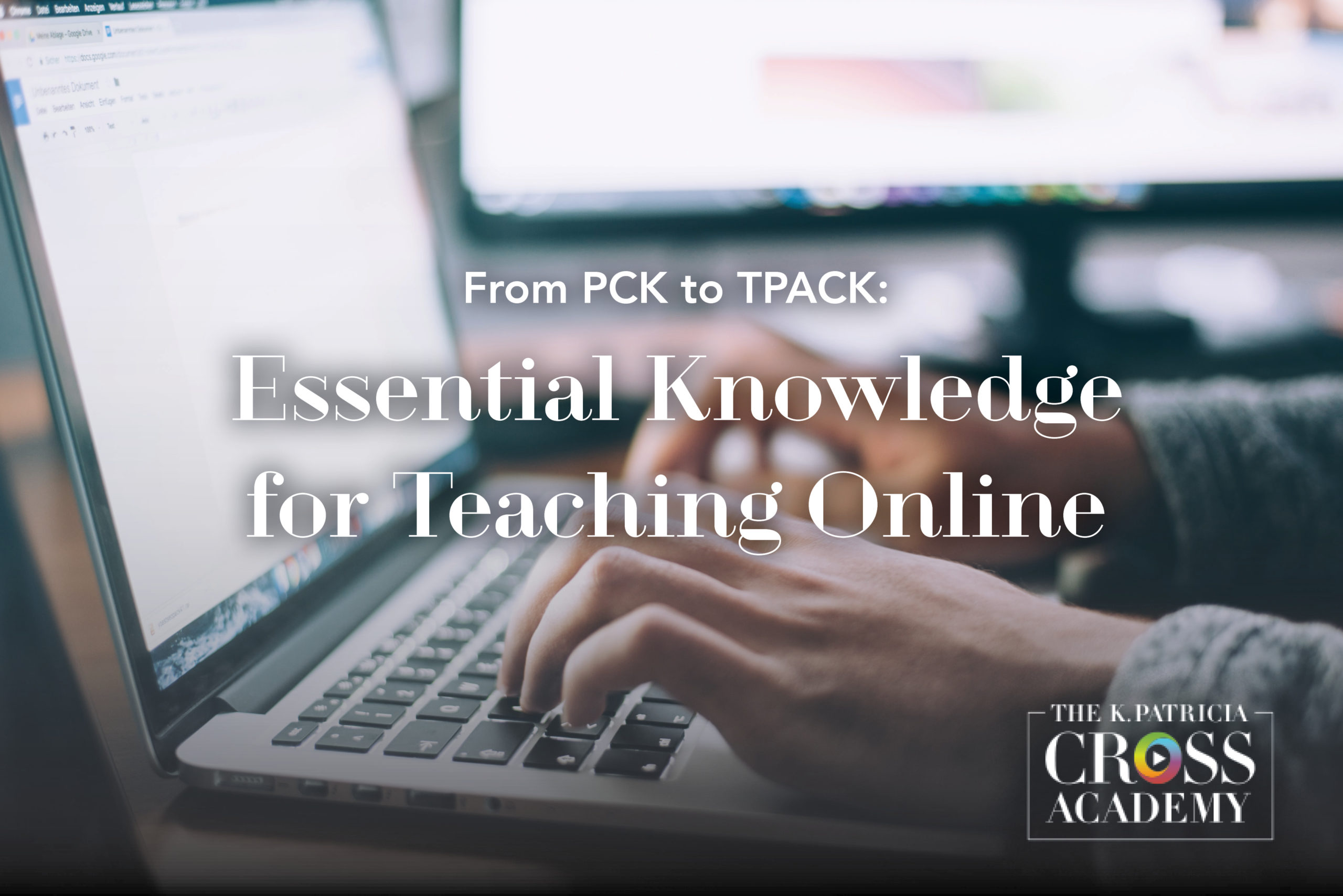
Few of us have had formal opportunities to learn about teaching online. As a result, we often lack a full understanding, or even a good practical sense, of the look, pacing, and feel of an online course. But to teach online well, we need such knowledge. Lee Shulman, educational psychologist and former president of the Carnegie Foundation for the Advancement
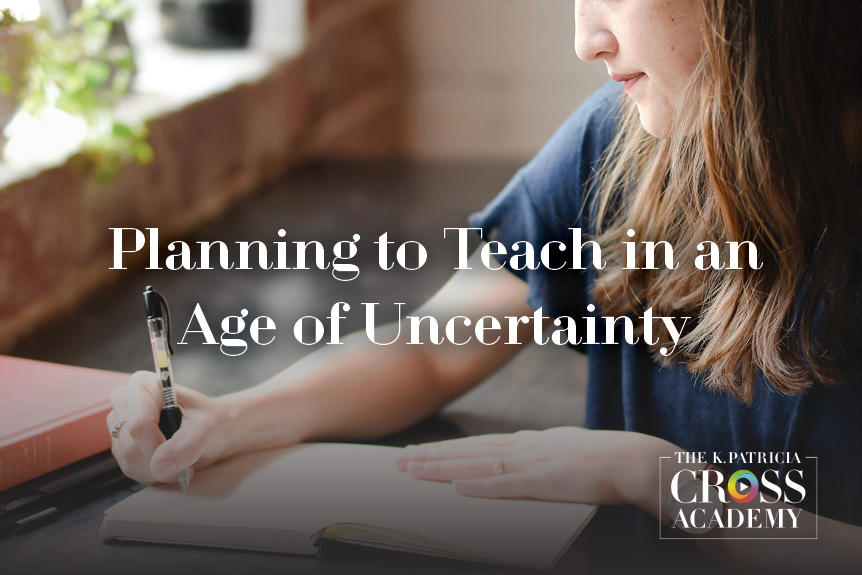
At the outset of the COVID-19 pandemic and the sudden, mandatory campus closures, college and university faculty had to quickly determine how best to offer instruction online. Video-conferencing apps like Zoom and Skype provided a lifeline, as many faculty turned to synchronous remote instruction to communicate with their geographically dispersed students. Some instructors, knowing that their students only had access

“I like a teacher who gives you something to take home and think about besides homework.” ~ Lily Tomlin When you are choosing what students will do during the semester, have you ever wondered whether you are assigning too much or too little work? Finding an appropriate workload balance for students can be a real challenge. And surprisingly, little research

“In learning you will teach, and in teaching you will learn.” ~ Phil Collins Before each semester, we sit down to write a syllabus for the coming course, most often without having met the people who will fill our rosters. Most of us have to (or want to) include learning objectives in this syllabus, a task that can be simultaneously

“It’s what you learn after you know it all that counts.” ―John Wooden Many “edumyths” exist, and unfortunately these can be harmful to students and even to teachers. What are we talking about? Edumyths are common beliefs about education. These myths often express claims about what practices benefit learning or learners. They typically have no basis of fact, however. Either

“Learning is not attained by chance, it must be sought for with ardor and attended to with diligence.” ~ Abigal Adams One of the most often cited works on learning, and one we refer to often, is John Bransford, Ann Brown, and Rodney Cocking’s 2000 work appropriately titled How People Learn: Brain, Mind, Experience, and School. The report, which was

“Learning never exhausts the mind.” –Leonardo da Vinci The question of how people learn has intrigued generations of scholars. It is perhaps no surprise then that many different theories about individual learning exist. Some of these theories stem from a behaviorist perspective, a view that suggests that learning can best be explained in terms of conditioning. Some of the theories